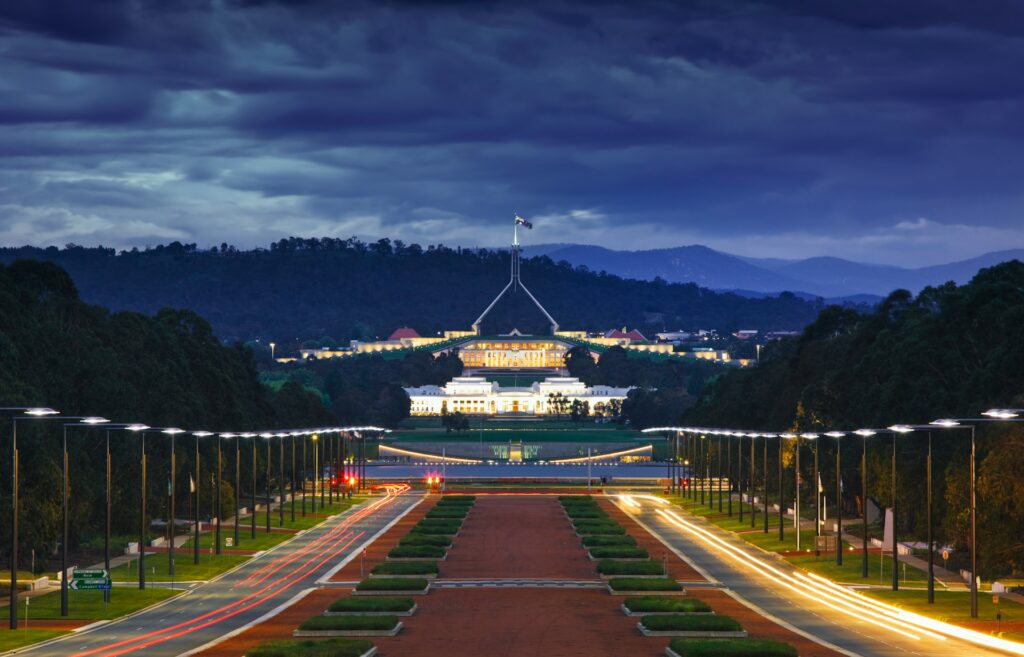The Australian Senate’s Legal and Constitutional Affairs Legislation Committee has recommended against the Legalising Cannabis Bill 2023, citing health risks and potential negative consequences of a legal cannabis market. Despite this setback, the Greens party remains committed to legalization, and plans to continue pushing for a Senate vote whilst also mobilizing broad public support.
Australian Senate Advises Against Cannabis Legalization Bill


The Australian movement for the legalization of cannabis for adult use has encountered a significant hurdle. The Australian Senate’s Legal and Constitutional Affairs Legislation Committee has officially recommended against adopting the cannabis legalization bill, the Legalising Cannabis Bill 2023.
For more news like this, along with all the latest in legalization, research, and lifestyle, download our free cannabis news app.
Australian Committee’s Recommendation
This bill, presented by Green Party Senator David Shoebridge, aimed to legalize personal cultivation, regulate sales, and allow cannabis consumption spaces. Although it received over 200 public comments and was the subject of extensive debate, the Australian committee’s report, completed on May 31, boils down to a single recommendation: “The committee recommends that the Senate not pass the bill.”
The primary reasons for this refusal are concerns about the potential health risks associated with a legal cannabis market. Vice Chair Paul Scarr emphasized the “significant risks associated with introducing a legal market for the recreational use of cannabis,” citing surveys indicating that many Australians might try cannabis if it were legalized, potentially leading to “disastrous health consequences” that the public may not fully understand.
Health Concerns and Opposition
The Australian Medical Association (AMA) and other medical bodies have also expressed concerns that broader access could exacerbate health risks, particularly for adolescents. The committee concluded that legalizing cannabis would create as many, if not more, problems than it would solve, highlighting the need to ensure that children and young people do not have access to cannabis and to effectively manage at-risk consumption.
The Greens’ Persistent Efforts to Legalize Cannabis
Despite the committee’s recommendation, the Australian Greens remain determined to legalize cannabis in Australia. Senator David Shoebridge’s Legalising Cannabis Bill 2023, introduced in August 2023, encompasses various reforms, including allowing adults to cultivate up to six cannabis plants at home without official authorization and creating cannabis products for personal use. The bill also proposes the establishment of a national agency to regulate cannabis cultivation and the creation of licensed “cannabis cafes,” similar to those in Amsterdam.
Following the committee’s rejection of the bill, Shoebridge expressed his disappointment but reaffirmed the Australian Greens’ commitment to the cause. He noted that despite overwhelming evidence in favor of the bill, Labor and Coalition senators opposed it. Shoebridge’s report highlights the bill’s potential benefits, such as job creation, easing pressure on the judicial system, diverting revenue from organized crime, funding essential services, and expanding consumer choices.
Shoebridge stated that the Greens will now seek a vote in the Australian Senate and mobilize their supporters to pressure local parliamentarians. The party underscores public support for this reform, citing the National Drug Strategy 2017-26, which acknowledges that the illegal status of cannabis has fostered a thriving black market with significant health and social costs. Shoebridge claims that millions of Australians desire this change and that cannabis legalization would align Australia with many other countries and U.S. states that have already enacted similar reforms.
General Australian Cannabis Situation
Cannabis remains the most commonly used illicit drug in Australia. According to the latest Australian National Drug Strategy household survey, more than 2.5 million Australians have recently used cannabis, with 11.7% of people aged 14 and over reporting use in the past 12 months. This figure is even higher among young Aboriginal and Torres Strait Islander people (16%).
Despite its illegal status for recreational use, medical cannabis has been legal in Australia since 2016, and about 700,000 people reported using it for medical purposes last year. Penalties for illicit cannabis use vary by state and territory. The Capital Territory legalized cannabis in 2019, for example, while other provinces range between decriminalization and strict prohibition.
The Greens’ bill, if adopted, would represent a significant shift in national policy and could enable 80,000 Australians to avoid the criminal justice system. Shoebridge argues that the current approach, driven by outdated political opinions and corporate interests, does not reflect public opinion and the reality that cannabis use should be treated as a health issue rather than a criminal one.
—
(Featured image by Social Estate via Unsplash)
DISCLAIMER: This article was written by a third-party contributor and does not reflect the opinion of Hemp.im, its management, staff, or its associates. Please review our disclaimer for more information.
This article may include forward-looking statements. These forward-looking statements generally are identified by the words “believe,” “project,” “estimate,” “become,” “plan,” “will,” and similar expressions. These forward-looking statements involve known and unknown risks as well as uncertainties, including those discussed in the following cautionary statements and elsewhere in this article and on this site. Although the company may believe that its expectations are based on reasonable assumptions, the actual results that the company may achieve may differ materially from any forward-looking statements, which reflect the opinions of the management of the company only as of the date hereof. Additionally, please make sure to read these important disclosures.
First published in Newsweed, a third-party contributor translated and adapted the article from the original. In case of discrepancy, the original will prevail.
Although we made reasonable efforts to provide accurate translations, some parts may be incorrect. Hemp.im assumes no responsibility for errors, omissions or ambiguities in the translations provided on this website. Any person or entity relying on translated content does so at their own risk. Hemp.im is not responsible for losses caused by such reliance on the accuracy or reliability of translated information. If you wish to report an error or inaccuracy in the translation, we encourage you to contact us.



Comments are closed for this post.